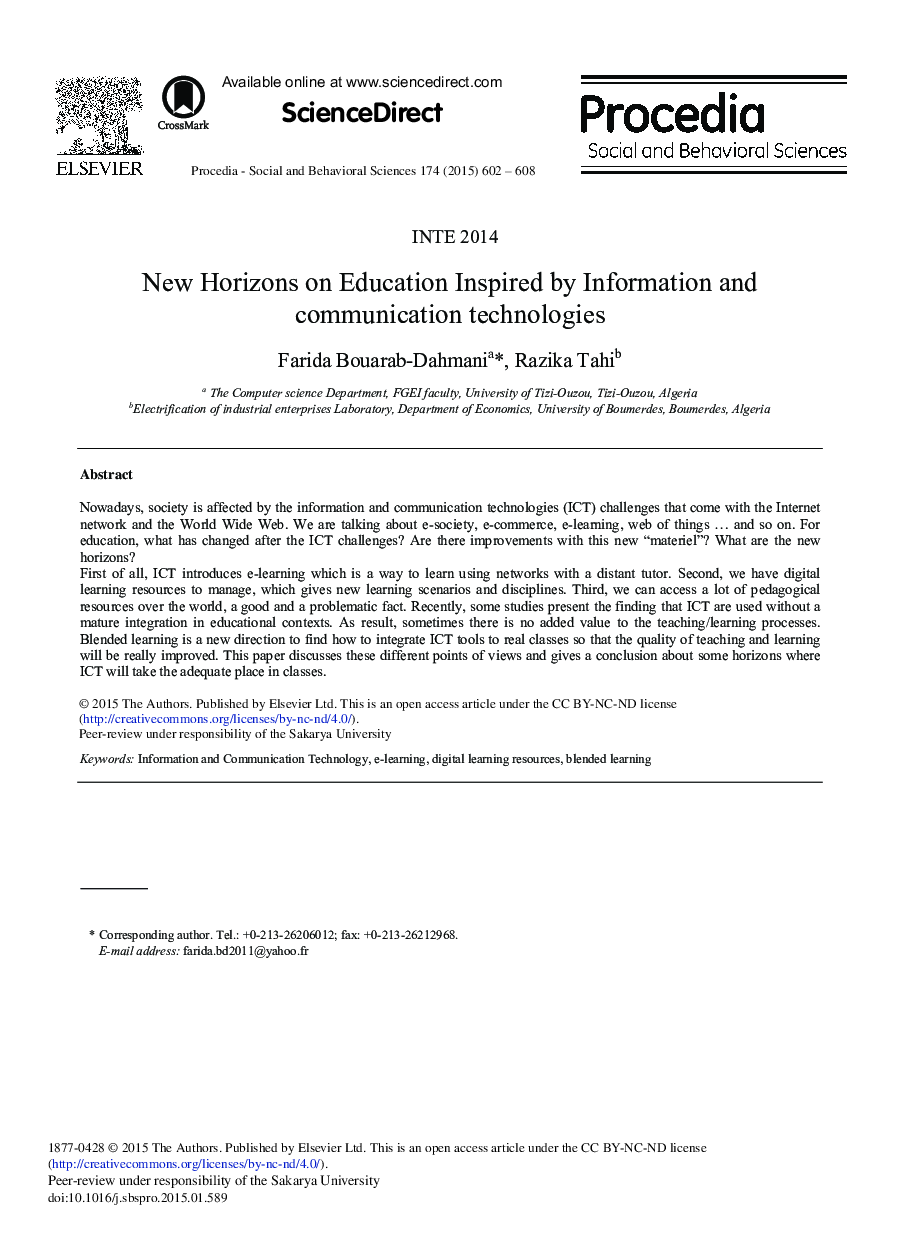| Article ID | Journal | Published Year | Pages | File Type |
|---|---|---|---|---|
| 1111276 | Procedia - Social and Behavioral Sciences | 2015 | 7 Pages |
Nowadays, society is affected by the information and communication technologies (ICT) challenges that come with the Internet network and the World Wide Web. We are talking about e-society, e-commerce, e-learning, web of things … and so on. For education, what has changed after the ICT challenges? Are there improvements with this new “materiel”? What are the new horizons?First of all, ICT introduces e-learning which is a way to learn using networks with a distant tutor. Second, we have digital learning resources to manage, which gives new learning scenarios and disciplines. Third, we can access a lot of pedagogical resources over the world, a good and a problematic fact. Recently, some studies present the finding that ICT are used without a mature integration in educational contexts. As result, sometimes there is no added value to the teaching/learning processes. Blended learning is a new direction to find how to integrate ICT tools to real classes so that the quality of teaching and learning will be really improved. This paper discusses these different points of views and gives a conclusion about some horizons where ICT will take the adequate place in classes.
